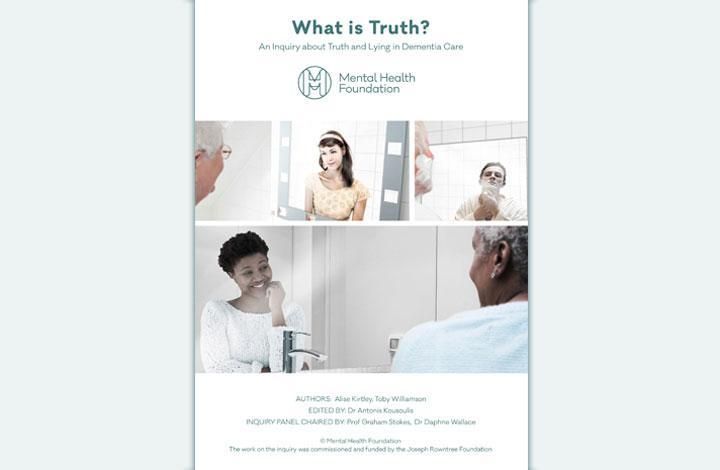The Mental Health Foundation has led an inquiry into our understanding of some of the most challenging aspects of living with dementia, in which people with dementia experience a reality or set of beliefs different from those around them.
Areas covered in this inquiry:
- What do these experiences of different realities and belief mean?
- Are untruths ever justified in supporting the wellbeing of people experiencing different realities or beliefs?
- The inevitable challenges of using untruths
- How can people respond to these experiences of different realities and beliefs?
- The underlying principles to all responses and interventions

The key questions of the inquiry were:
- What might these experiences of different realities and beliefs mean?
- Is “non-truth” telling justified in supporting the wellbeing of the person with dementia with these experiences?
A-Z Topic: Dementia
Dementia isn’t just about memory loss. It can affect how you think, feel, speak and behave.
Video: Raising awareness of the reality of living with dementia
Patricia, Diane and Deirdre tell their stories of living with dementia.
Blog: Is it wrong to lie to a person with dementia?
We need to give much more consideration to the values we use when supporting and caring for people living with dementia, especially as they are a group that can be at high risk for developing wider mental health problems.
Dementia, rights and the social model of disability
This paper describes the social model of disability in relation to dementia, as well as national and international law that is informed by it or that it connects with. It goes on to describe tools that can be used to apply the model through policy, practice, service and community development.
